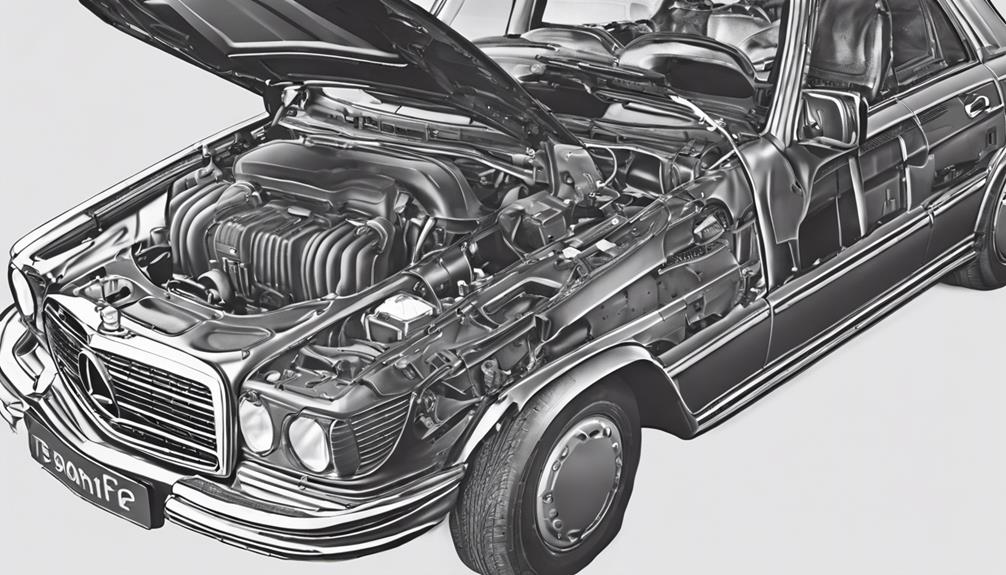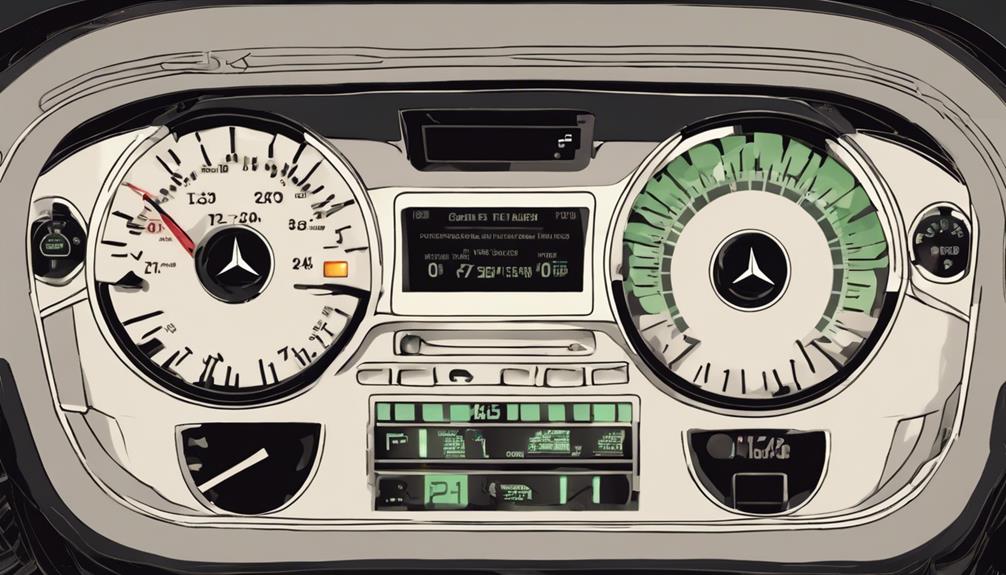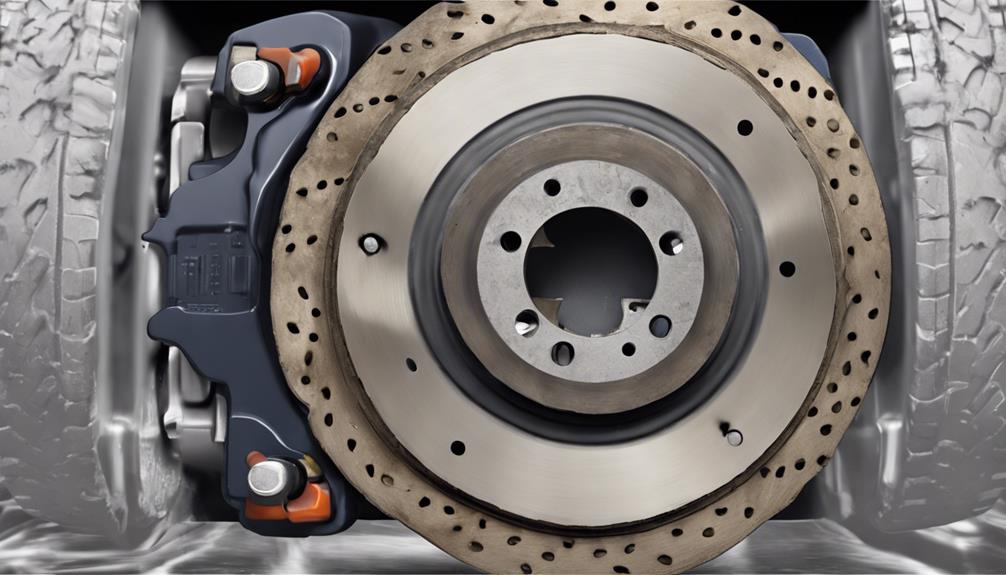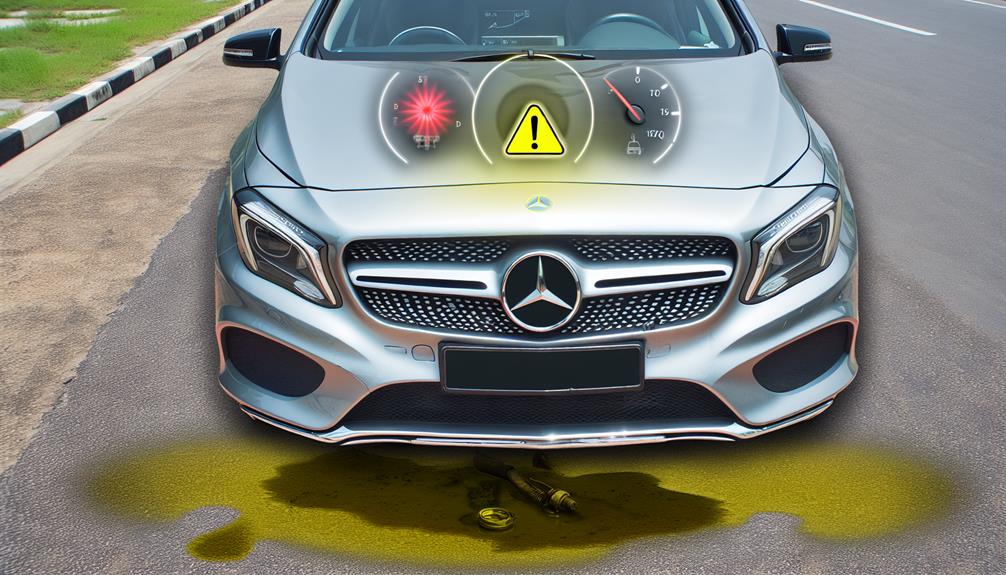Around the 50,000-mile mark, Mercedes vehicles typically start encountering problems with suspension components like control arms and bushings. This signifies the importance of regular maintenance and proactive servicing to prevent more significant issues from arising later. Investigating further milestones reveals engine troubles at 75,000 miles, transmission woes at 100,000 miles, electrical challenges at 125,000 miles, suspension concerns at 150,000 miles, cooling system issues at 175,000 miles, brake system failures at 200,000 miles, aging component focus at 225,000 miles, and major overhauls at 250,000 miles.
Key Takeaways
- Common issues start around 50,000 miles, including suspension components and maintenance tasks like spark plug inspection.
- Engine problems may emerge at 75,000 miles, such as oil leaks and timing chain issues.
- Transmission troubles can arise at 100,000 miles, leading to slipping gears and rough shifting.
- Electrical problems may surface at 125,000 miles, impacting critical components like sensors and wiring systems.
- Suspension concerns may become evident at 150,000 miles, affecting handling and ride comfort.
Common Problems at 50,000 Miles

At around 50,000 miles, Mercedes vehicles commonly encounter issues with suspension components such as control arms and bushings. This stage marks an important point for maintenance, where checking the condition of these parts can prevent further damage and guarantee a smooth driving experience. Additionally, it's recommended to inspect the spark plugs and perform an oil change around this mileage to maintain the engine's efficiency and longevity. Mercedes Benz models are known for their performance and luxury, and taking care of these routine maintenance tasks can help preserve these qualities.
Regular servicing is essential to address potential leaks from the engine oil pan and transmission seals, which are common problems that may arise at 50,000 miles. Monitoring electrical components like sensors and modules is also crucial to prevent malfunctions. Ensuring that engine components such as the timing chain and tensioners are inspected can prevent costly repairs down the line. By staying proactive with maintenance, Mercedes owners can address issues promptly and enjoy a reliable driving experience.
Engine Issues at 75,000 Miles
Around 75,000 miles, Mercedes vehicles may begin experiencing engine issues resulting from wear and tear. These issues can be concerning, but with proper attention, you can keep your Mercedes running smoothly. Here are some common engine problems that may arise around this mileage:
- Oil Leaks: Seals and gaskets can deteriorate over time, leading to oil leaks that need to be addressed promptly.
- Timing Chain Issues: As the mileage climbs, the timing chain may start to wear out, potentially causing engine performance issues.
- Sensor Failures: Sensors play an essential role in monitoring various engine functions; failure can lead to decreased performance or even engine stalling.
- Component Deterioration: Components like belts and hoses can degrade, affecting the engine's efficiency and reliability.
Importance of Maintenance: Regular maintenance is key to preventing or addressing these engine issues, ensuring your Mercedes continues to perform at its best.
Transmission Troubles at 100,000 Miles

As your Mercedes reaches around 100,000 miles, transmission troubles may start to arise. Common issues identified in Mercedes vehicles at this mileage mark include slipping gears and rough shifting.
To maintain longevity, regular maintenance is key to prevent costly transmission repairs.
Mileage and Transmissions
Upon reaching 100,000 miles, Mercedes vehicles may encounter transmission issues such as slipping gears, rough shifting, or leaks in transmission fluid due to wear and tear.
- Regular maintenance and fluid changes can help prolong the transmission's lifespan.
- Promptly addressing transmission issues can prevent further damage and maintain driving performance.
- Mercedes models may experience a big difference in transmission reliability at this mileage point.
- Transmission repairs or replacements can be costly for Mercedes vehicles around 100,000 miles.
- Proper care and attention to transmission symptoms like rough shifting or fluid leaks can help mitigate potential problems.
Common Issues Identified
At the 100,000-mile mark, Mercedes vehicles commonly exhibit transmission troubles, including rough shifting, slipping gears, and potential total failure. High mileage can intensify wear and tear on transmission components, leading to these issues. Addressing transmission problems promptly is important to prevent costly repairs or replacements. Regular maintenance checks and monitoring of transmission fluid levels can aid in prolonging the transmission's lifespan in Mercedes vehicles.
| Common Transmission Issues at 100,000 Miles | Description | Impact |
|---|---|---|
| Rough Shifting | Abrupt gear changes | Uncomfortable driving experience |
| Slipping Gears | Inconsistent power delivery | Reduced acceleration |
| Total Failure | Complete loss of transmission function | Immobility of the vehicle |
Maintenance Tips for Longevity
Regular maintenance checks on your Mercedes transmission can greatly extend its lifespan, especially as your vehicle approaches the 100,000-mile mark. To guarantee your transmission stays in top condition, follow these maintenance tips:
- Check and change transmission fluid as per manufacturer's recommendations.
- Monitor for early signs of transmission problems like slipping gears or rough shifting.
- Preserve the transmission cooler to prevent overheating and damage.
- Confirm the transmission cooler functions efficiently.
- Schedule regular transmission inspections with a professional mechanic to catch potential issues early.
Electrical Problems at 125,000 Miles

Experiencing electrical issues around the 125,000-mile mark in your Mercedes can be indicative of wear and tear on critical components. Common problems that may arise at this mileage include failures in sensors, modules, and wiring systems. These issues can manifest through symptoms such as dashboard warning lights illuminating unexpectedly, lights flickering intermittently, or accessories malfunctioning.
It's essential to address these electrical concerns promptly to prevent further damage and avoid expensive repairs down the line. Regular maintenance and inspections are vital to identify and resolve electrical issues early on, potentially saving you both time and money in the long run.
Suspension Concerns at 150,000 Miles
At 150,000 miles, your Mercedes' suspension components may show signs of wear and tear, impacting your driving experience.
Watch out for symptoms like uneven tire wear, clunking noises, and compromised handling.
Taking care of these issues promptly can prevent further damage and guarantee smoother rides, potentially saving you from costly repairs down the road.
Suspension Wear and Tear
Suspension wear and tear can become noticeable in Mercedes vehicles around 150,000 miles, impacting ride quality and safety. Some key points to ponder concerning suspension concerns at this mileage include:
- Watch out for signs like uneven tire wear and a bumpy ride.
- Worn suspension parts such as shocks, struts, and control arms may need replacement.
- Regular maintenance and inspections are vital for early detection of suspension issues.
- Promptly addressing suspension problems can enhance safety on the road.
- Improving the suspension system can lead to a smoother driving experience in your high-mileage Mercedes.
Handling Performance Decline
After 150,000 miles, Mercedes vehicles may exhibit a decline in handling performance linked to wear and tear on suspension components, affecting ride quality and safety. You may notice signs such as a rougher ride, uneven tire wear, and reduced stability while driving. Timely replacement of key components like shocks, struts, and control arms can help restore peak suspension function. Check out the table below for more information on common suspension issues and their impact on handling performance:
| Suspension Issue | Signs to Look For | Recommended Action |
|---|---|---|
| Rough Ride | Bouncing or excessive vibrations | Inspect shocks and struts |
| Uneven Tire Wear | Tread wear differences | Check alignment and tire pressure |
| Reduced Handling | Difficulty steering or unstable ride | Inspect control arms and bushings |
Repair Cost Considerations
Considering the mileage of 150,000, Mercedes owners should be aware of the potential repair costs associated with addressing suspension concerns. When it comes to suspension issues at this mileage, here are some key points to keep in mind:
- Suspension problems can arise due to wear and tear on components like shocks, struts, bushings, and control arms.
- Repair costs for suspension issues in Mercedes at 150,000 miles typically range from $500 to $1500 or more.
Promptly addressing suspension issues can help prevent further damage and guarantee driving safety.
Regular inspections and maintenance are pivotal for early detection of suspension issues, potentially saving you from costly repairs at 150,000 miles.
Being proactive about suspension maintenance can extend the lifespan of your Mercedes and enhance your driving experience.
Cooling System Challenges at 175,000 Miles
Approaching 175,000 miles, Mercedes vehicles may encounter cooling system challenges that necessitate attention to prevent potential issues. Components like the radiator, water pump, and hoses can show signs of wear and tear, leading to issues such as overheating if left unchecked.
Common problems include coolant leaks and thermostat failures, which can escalate if not addressed promptly. Regular inspections and timely repairs are essential to avoiding major cooling system malfunctions at this mileage.
Keeping an eye out for any warning signs, such as coolant puddles under the car or fluctuations in temperature gauge readings, can help you catch problems early. By staying proactive and ensuring proper maintenance, you can extend the longevity of your Mercedes' cooling system and prevent costly repairs down the road.
Brake System Failures at 200,000 Miles

As Mercedes vehicles reach the 200,000-mile mark, brake system failures due to wear and tear become a common concern that necessitates attention and maintenance. High mileage can lead to various brake system issues in Mercedes cars, including brake caliper problems, brake pad wear, and brake fluid leaks. Addressing these concerns promptly is vital for guaranteeing the continued reliability and safety of your Mercedes at this milestone.
Here are some key points to take into account:
- Brake calipers may experience increased wear and tear, impacting braking performance.
- Brake pads tend to wear down faster, requiring regular inspection and replacement.
- Brake fluid leaks can compromise the effectiveness of the braking system and should be addressed promptly.
- Regular brake inspections are essential to detect potential issues early on and prevent severe failures.
- Replacing worn brake components is necessary to maintain ideal brake function and ensure safety while driving your high-mileage Mercedes.
Aging Components at 225,000 Miles
As Mercedes vehicles reach the 225,000-mile mark, attention should shift towards addressing aging components that may affect the car's performance and longevity. Suspension parts, engine mounts, and seals are common areas where wear and tear become noticeable at this mileage.
The electrical systems, including sensors and wiring, are also prone to developing issues as the vehicle ages. Regular inspections and essential maintenance become vital steps to identify and rectify potential problems before they escalate.
Major Overhauls at 250,000 Miles

By the time your Mercedes hits 250,000 miles, major overhauls may be necessary to address wear and tear on critical components. Here are some common issues you may encounter at this mileage:
- Engine Components: Parts like pistons, valves, and gaskets may need attention to guarantee peak performance.
- Suspension Parts: Components such as shocks, struts, and control arms may require replacement to maintain a smooth ride.
- Electrical Systems: Wiring harnesses, sensors, and modules could experience wear, leading to potential malfunctions.
- Increased Oil Consumption: Due to engine wear, your Mercedes may start using more oil between changes.
- Transmission Issues: The transmission may exhibit signs of wear, such as slipping gears or rough shifting.
Addressing these major overhauls promptly can help extend the lifespan of your high-mileage Mercedes and keep it running smoothly for miles to come.
Frequently Asked Questions
At What Mileage Do Mercedes Break Down?
You start noticing issues in your Mercedes around 100,000 to 150,000 miles. Problems like electronic failures, transmission issues, and suspension wear may crop up. Regular maintenance helps prevent breakdowns. Some models last longer before major problems arise.
How Many Miles Is Too Much for a Used Mercedes?
When considering a used Mercedes, mileage over 100,000 can lead to potential costly repairs. Keep in mind that high-mileage Mercedes, especially over 150,000 miles, may require significant maintenance. Evaluate the risk versus the investment carefully.
Are Mercedes Good After 100k Miles?
After 100k miles, Mercedes can still be reliable if well-maintained. Regular upkeep is key to addressing potential issues like engine leaks, suspension problems, and electrical malfunctions. With proper care, your Mercedes can continue running smoothly.
Are Mercedes Reliable After 50k Miles?
After 50k miles, Mercedes remain reliable with proper care. Regular maintenance and quality engineering guarantee longevity. Keeping up with servicing can help your Mercedes last well beyond 50k miles without major issues. Trust in its durability.
Conclusion
By vigilantly monitoring your Mercedes at specific mileage intervals, you can predict and address potential problems before they escalate.
At 50,000 miles, watch out for common issues like leaks and worn belts.
By 75,000 miles, keep an eye on engine performance.
Transmission troubles may arise at 100,000 miles, followed by electrical problems at 125,000.
Suspension, cooling system, brakes, aging components, and major overhauls are all potential concerns as your Mercedes reaches higher mileage milestones.
Stay proactive to guarantee your Mercedes runs smoothly for years to come.









